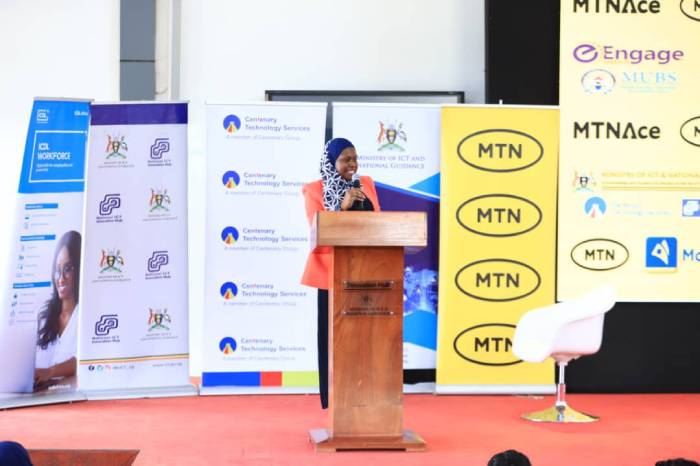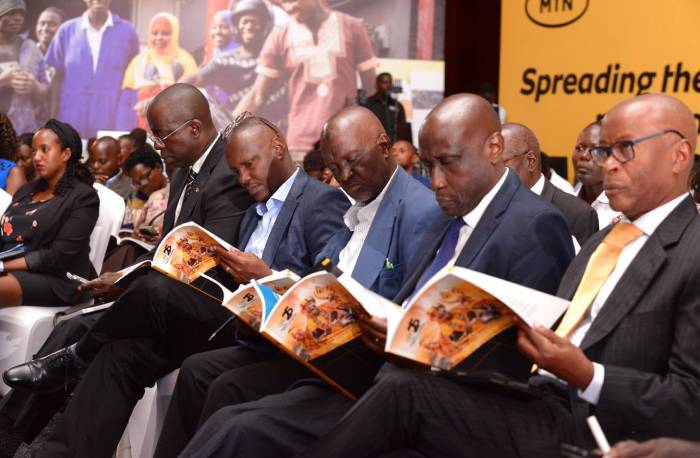Bridging the digital divide in Uganda’s education sector
- Education ICT
executivewatch
- November 4, 2024
- 0
- 4 minutes read

Bryan Mbasa
By Bryan Mbasa
Last month, Dr. Chris Baryomunsi, the ICT Minister, announced an exciting and ambitious plan to set up computer labs in all public secondary schools across Uganda. This initiative, revealed during the launch of a computer lab at San Giovanni School-Makiro in Kanungu District with the support of our partners, American Tower Corporation, marks a transformative milestone in the country’s educational landscape.
This effort underscores the government’s commitment to promoting digitalization through favorable policies such as Uganda’s Vision 2040 and the Digital Transformation Roadmap. The Uganda Communications Commission has already established over 1,000 computer labs in various schools nationwide over the past few years, setting a strong foundation for this new initiative.
The timing of this step is particularly significant, especially given that 75% of Uganda’s population is under the age of 30 and currently facing high unemployment rates.
By integrating computers into educational institutions, we can empower students with essential digital skills vital for today’s modern workplace. This initiative will facilitate their transition into productive employment, ultimately benefiting our economy.
Thus, access to computers not only enhances information availability but also fosters collaboration and critical thinking—skills crucial for success in fast-evolving fields such as technology, engineering, and innovation.
By equipping our students for careers in these sectors, we can lay a solid foundation for sustained economic growth and global competitiveness.
At MTN Uganda, we recognize the transformative potential of digital education. Our strategic initiatives include establishing over 57 ICT labs nationwide and supporting technical institutes like Amelo Technical Institute in Adjumani and St. Simon Peter’s Vocational Training Centre in Hoima.
These efforts provide students with hands-on learning experiences, equipping them for success in a digitally driven world. Our Ambition 2025 strategy aligns seamlessly with these initiatives, aiming to bridge the digital divide and empower young Ugandans through technology.
Moreover, introducing computers in public schools extends benefits beyond the classroom. By equipping teachers with modern tools, we enhance lesson delivery and improve educational outcomes while expanding their professional capabilities.
This initiative also empowers community members to acquire valuable digital skills, fostering socio-economic development in underserved regions.
However, while the promise of this initiative is immense, challenges remain—particularly concerning the affordability of internet access.
To fully realize the benefits of computer-equipped schools, students, educators, and communities must have access to affordable and reliable internet services.
By making internet access more affordable, we can accelerate Uganda’s digital transformation agenda, empowering citizens from all backgrounds to fully participate in the digital economy and reap the benefits of enhanced connectivity.
As such, we urge all stakeholders—students, educators, government entities, and private sector partners—to unite behind the government’s initiative to equip secondary schools with computers.
Together, we can empower a digitally literate generation ready to tackle challenges and seize opportunities in the digital era.
MTN Uganda remains steadfast in supporting this vision. By collaborating with stakeholders and leveraging our expertise in digital solutions, we can build a digitally inclusive Uganda where every individual has the tools and skills needed to thrive.
Let us rally together under the banner “Together, We’re Unstoppable,” ensuring that Uganda’s digital future is bright and prosperous for all. As we embrace this new era of digital education, we pave the way for a generation of innovators and leaders ready to shape the future.
Mbasa is a senior manager at MTN Foundation





